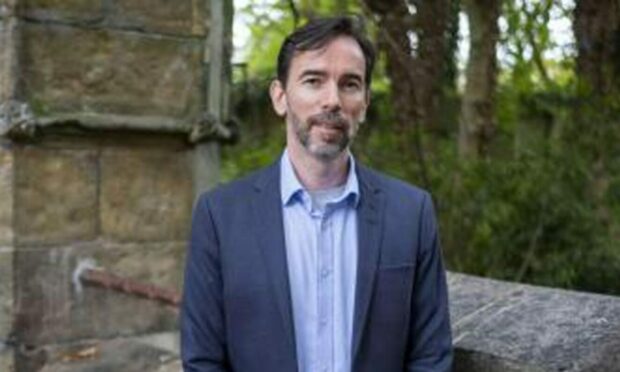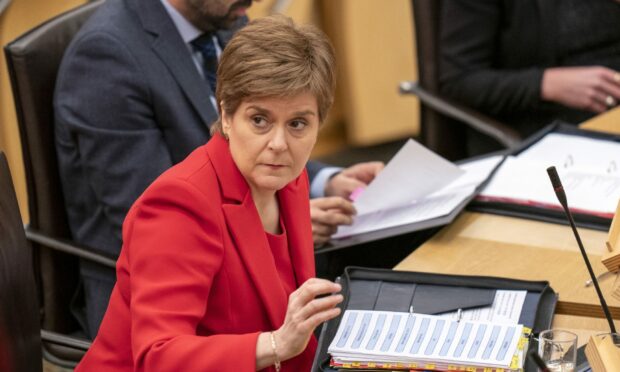Nicola Sturgeon’s ‘Plan B’ to fight the next UK election on independence alone could turn into an electorally damaging uphill battle, according to a leading strategist from the 2014 referendum campaign.
In an interview for DC Thomson’s political podcast, The Stooshie, Stephen Noon said there are “serious questions” about forcing voters to see a general election as a decision on independence.
Mr Noon reflected on his experience and offered up advice for the current leadership in the wake of the Supreme Court ruling that Holyrood cannot hold a referendum next October without Westminster consent.
“Another campaign which is about a block of 50% knocking their heads against another block of 50% is not going to get us to the place where we are moving forward,” he said.
“I think there are serious questions to ask about is this the right ground to be fighting on?”
Ex-strategist Mr Noon first campaigned for the SNP in 1994. He briefly shared a flat with SNP chief executive Peter Murrell, who married Nicola Sturgeon in 2010.
After stepping back from politics after the No vote in 2014, he went into religious life and became a Jesuit in Canada for seven years.
Since returning home to Scotland, he has been researching politics at Edinburgh University.
The ex-independence adviser says his experiences abroad have convinced him the constitutional debate needs to change.
Binary debate
He said: “There’s a way of seeing the world which is focused on what divides us.
“I think in the constitutional debate there’s actually much more that unites us. Independence and union are not two opposites.
“They are different ends of the scale, but as a Yes supporter I don’t want Scotland to be like North Korea stuck out there on its own.
“Are we happy with the way this debate is taking place? I think most people would say no we’re not. It’s become a wee bit too binary.”
Mr Noon said any lasting settlement must command widespread support. He also claimed Yes supporters must accept Scots may end up rejecting independence.
He said: “I’m really attracted to a process that is unifying. We as Yes supporters have to be open to the people of Scotland choosing the union.”
Despite scepticism over her election plans, Mr Noon was full of praise for Ms Sturgeon’s response to the court verdict.
He said: “She made the very crucial point: what then is the democratic path to independence?”
But rhetoric has also hardened in the aftermath of Wednesday’s court ruling.
The first minister branded the Tories “democracy deniers”. Thousands of independence supporters held rallies across Scotland.
Nationalists say the Supreme Court ruling shows Scotland is not in a “voluntary union” and bemoan the lack of any clear route to a referendum.
Mr Noon said the SNP must still try to find what common ground they can with the opposition.
‘What is the path forward?’
He said: “A really important thing for the movement is not just winning a vote, it’s actually also becoming an independent country.
“We have to have a path which is not going against the UK but is in some way working with the UK. That’s not easy. I appreciate that.”
To the first minister, Mr Noon added: “Our friends and allies who are not part of the Yes movement are not a million miles away from us on some issues.
“I would encourage her to reach out beyond the Yes movement, in particular around this issue of – what is the path forward?”
You can listen to the full interview and wider discussion about the constitutional future on The Stooshie podcast here.



Conversation